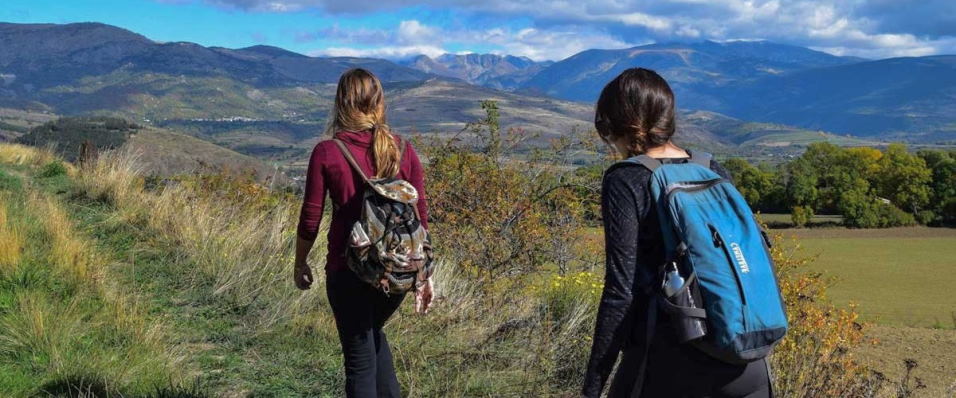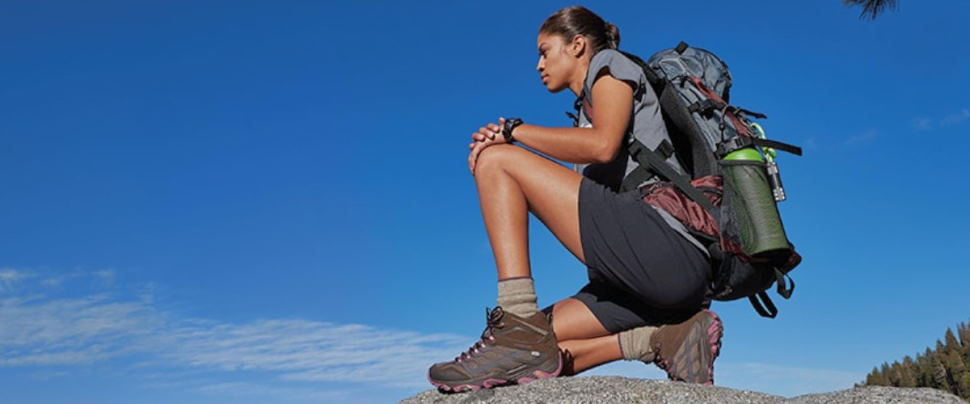
Sun Protection Tips When Hiking: How to Stay Safe from the Sun’s UV Rays
It’s important to take precautions against the sun’s ultraviolet (UV) rays when hiking, especially during the summertime. UV exposure can cause a number of problems, such as skin cancer, sunburns, and eye damage. This blog post will discuss some tips for protecting yourself from the sun while hiking. So stay safe and have fun out there!
The dangers of the sun
Sunburn
You may not even know that you have sunburn until hours later when your skin starts to feel hot, itchy, or painful. The first sign of sunburn is often red or pink skin that is warm to the touch. If you have a severe sunburn, your skin may blister and become very painful. You may also experience nausea, vomiting, chills, and fever.
If you experience any of these symptoms, it’s essential to seek medical attention immediately. If you have sunburn, you should avoid further exposure to the sun and take steps to cool your skin. For example, apply a cool compress or take a cool bath to help relieve pain and swelling. You can also apply aloe vera gel or a moisturizer to your skin to help soothe it.
It’s also important to stay hydrated if you have sunburn. Drink plenty of fluids, such as water and sports drinks, and avoid alcoholic beverages. Alcohol can dehydrate your body and make sunburn symptoms worse.
Skin Cancer
Skin cancer is the most common type of cancer in the United States.
UV exposure is the leading cause of skin cancer. The sun’s UV rays can damage the DNA in your skin cells, leading to cancer. That’s why it’s so important to take precautions against UV exposure, especially if you’re fair-skinned or have a family history of skin cancer.
If you notice any changes in your skin, such as a new mole or a change in an existing mole, it’s important to see a doctor right away. Skin cancer is highly treatable when it’s caught early.
Eye Damage
UV exposure can also damage your eyes. For example, too much sun can cause a condition called solar retinopathy, which damages the retina, the light-sensitive tissue at the back of the eye. Solar retinopathy can cause vision problems, such as blurriness and difficulty seeing at night. It can even lead to blindness.
Sun sensitivity
Some people are more sensitive to the sun than others. If you have a medical condition that makes your skin more sensitive to UV rays, such as lupus or xeroderma pigmentosum, it’s important to take extra precautions against sun exposure.
People who take certain medications may also be more sensitive to the sun. These medications include antibiotics, antihistamines, diuretics, and certain heart medications. If you take any of these medications, be sure to talk to your doctor about how to protect yourself from the sun.

Sunburn prevention tips for hikers
Plan your trip around the sun
When planning your camping trip, try to avoid times when the sun will be at its strongest if you can, camp during the spring or fall, when the days are shorter, and the sun is lower in the sky. And if you’re camping in the summer, choose a campsite that’s shaded by trees or set up a tarp or umbrella for shade.
Seek shade
When you’re camping, try to stay in the shade as much as possible. If there’s no natural shade, make your own by setting up a tarp or umbrella. Take breaks in the shade often, and avoid being in the sun during the midday when UV rays are strongest.
Monitor your time in the sun
If you can’t avoid being in the sun, be sure to monitor your time carefully. Limit your exposure to the sun, and take breaks often. Be especially careful during the midday sun, when UV rays are strongest.
Hiking in the mountains
If hiking in the mountains, be aware that UV rays are even more vital at high altitudes. Take extra precautions to protect yourself, such as wearing sunscreen and protective clothing and seeking shade whenever possible. And be sure to stay hydrated to avoid dehydration, which can worsen sunburn symptoms.
Sun safety tips for camping trip
Wear sunscreen
One of the best ways to protect yourself from the sun is to wear sunscreen with an SPF of at least 30. Be sure to apply sunscreen evenly to all exposed areas of skin, including your face, neck, ears, and hands. Reapply sunscreen every two hours, or more often if you’re sweating or swimming.
Wear protective clothing
Another way to protect yourself from the sun is to wear protective clothing. For example, wear a hat or visor to help shade your face, and wear sunglasses to protect your eyes. Wear long-sleeved shirts and pants made of light-colored, loose-fitting fabric if you can.
Always put on your hat
You’ve probably heard it a million times, but it’s worth repeating: Wear a hat when you’re in the sun. A wide-brimmed hat will help shade your face, neck, and ears. And if you can’t find a hat, be sure to use sunscreen to protect your head from the sun.
Wear sunglasses
Sunglasses aren’t just a fashion accessory. They’re also an important part of sun protection. UV rays can damage your eyes, causing conditions such as cataracts and macular degeneration. Sunglasses help protect your eyes by blocking out harmful UV rays.
Be sure to choose a pair of sunglasses that block out UVA and UVB rays. And be sure to wear them whenever you’re in the sun, even on cloudy days.

Use lip balm
Lips are susceptible to sun damage, too. Be sure to use a lip balm or Chapstick with an SPF of at least 15. Apply it liberally to your lips, and reapply it often.
Stay hydrated
Dehydration can make sunburn symptoms worse, so be sure to stay hydrated by drinking plenty of fluids. Water is the best choice, but you can also drink fruit juice, sports drinks, coffee, or tea. Avoid alcohol, which can dehydrate you.
There were the most common sun protection tips when hiking: how to stay safe from the sun’s uv rays and how to prevent sunburn.
Sun care for babies and toddlers
Babies and toddlers are especially susceptible to sunburn, so it’s important to take extra care to protect them from the sun.
Dress your baby in light-colored, loose-fitting clothes.
Put a hat on your baby or toddler, and ensure it covers their ears.
Apply sunscreen to your baby’s exposed skin, including their face, neck, hands, and feet. Be sure to use a sunscreen with an SPF of at least 30, and reapply it every two hours.
Avoid being in the sun during the midday hours, when UV rays are strongest.
Use caution when using sunscreen on babies.
